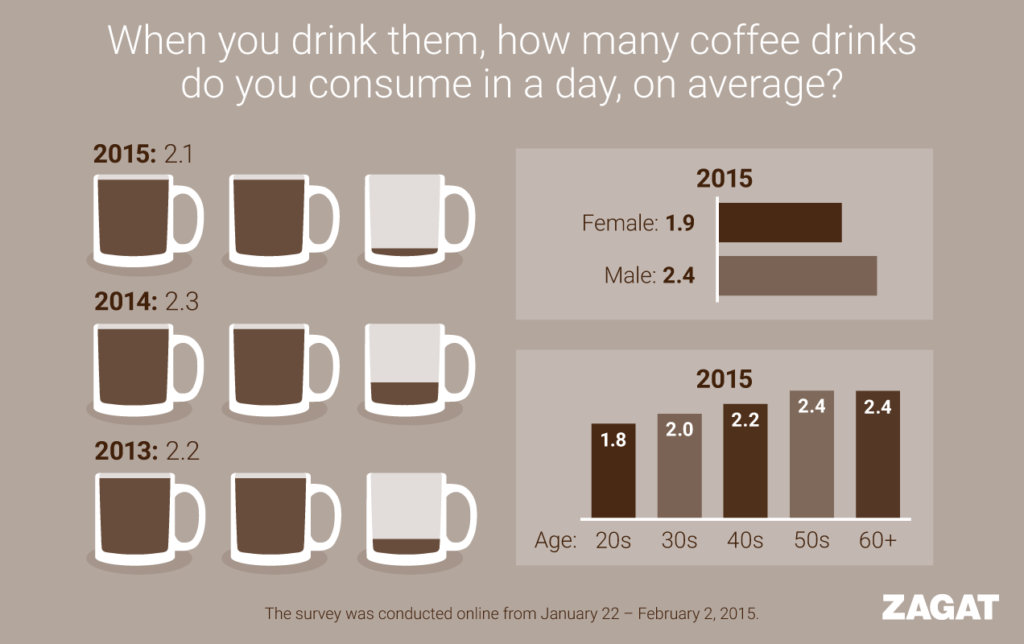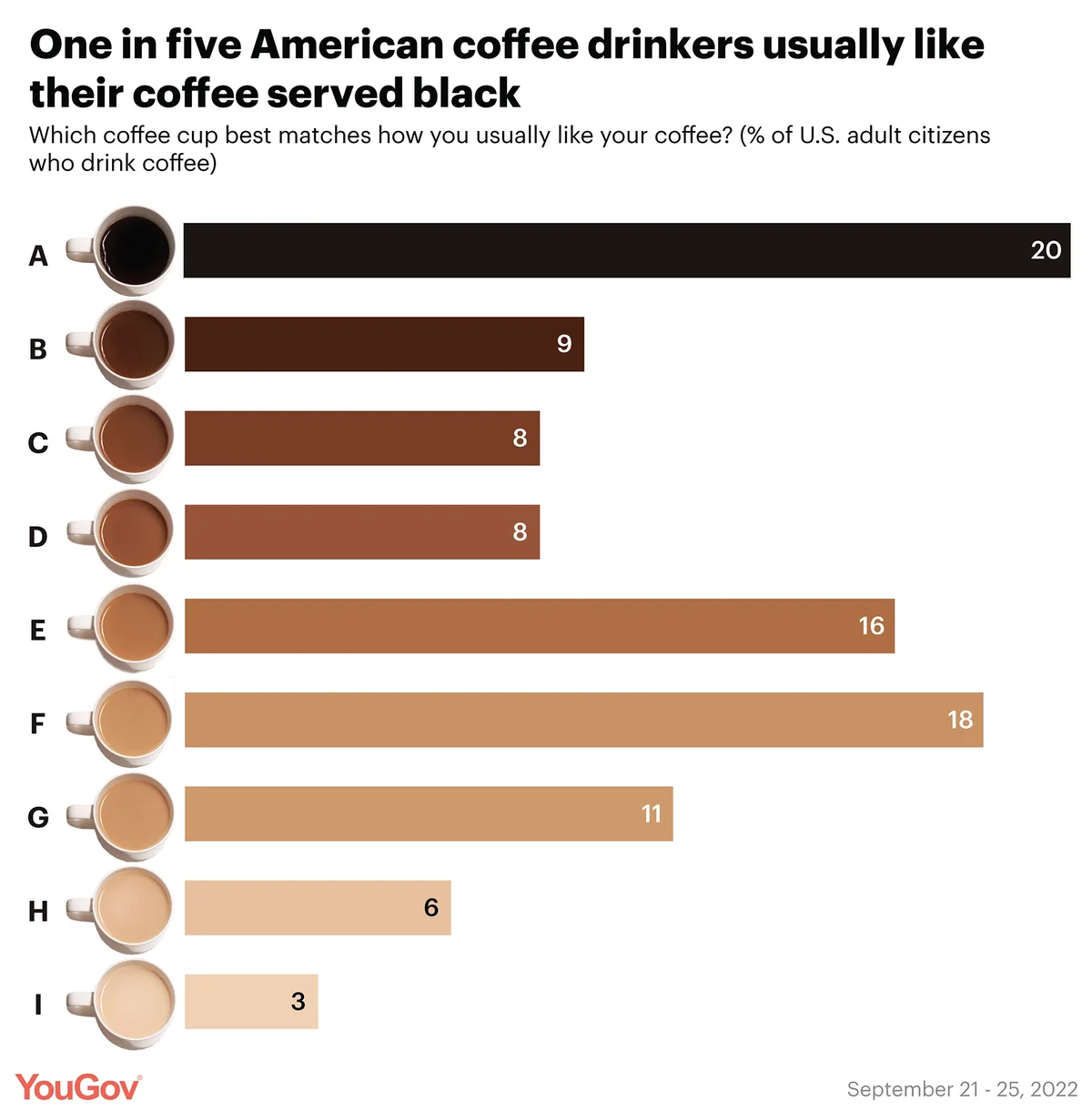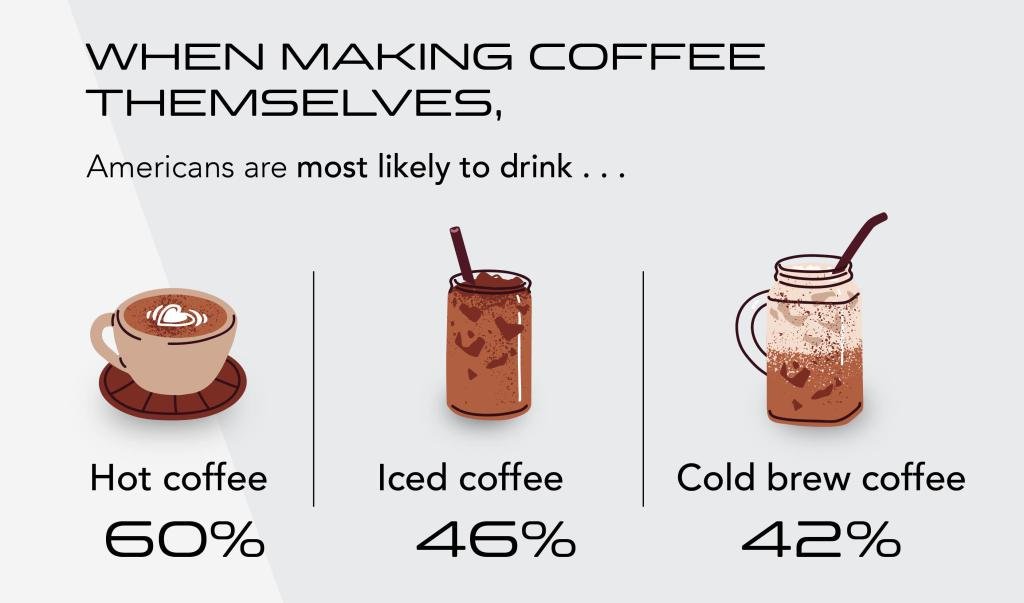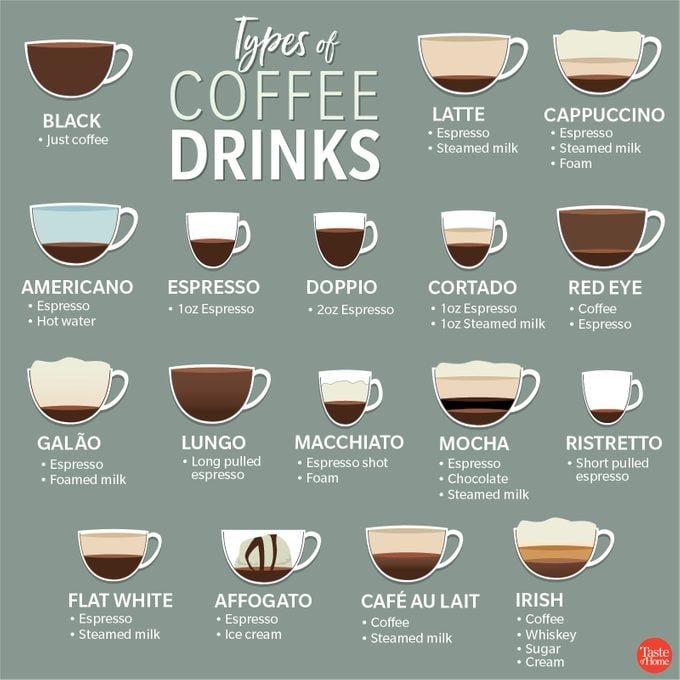What is your go-to coffee order? Is it a classic cup of black coffee, a creamy cappuccino, or perhaps a sweet caramel macchiato? These days, the world of coffee is as diverse as it is delicious, catering to a myriad of taste buds and preferences. With so many options available, you may wonder which coffee types are the most popular among coffee enthusiasts.

The Popularity of Coffee: A Global Phenomenon
Coffee is more than just a beverage—it’s a cultural touchstone that brings people together, fuels productivity, and inspires creativity. The global love for coffee is evident in its widespread consumption. According to the International Coffee Organization, billions of cups are enjoyed each day, making it one of the most cherished beverages worldwide. But what specific types of coffee do people gravitate towards?
What Makes a Coffee Popular?
Understanding what makes a coffee popular requires considering various factors like flavor profiles, preparation methods, and cultural influences. People often seek specific qualities in their coffee, such as:
- Flavor and Aroma: Coffee can range from bold and bitter to sweet and floral.
- Strength and Intensity: Some prefer a robust, strong coffee, while others like a milder brew.
- Milk and Sugar Additions: The amount of milk and sugar can significantly alter the taste.
- Dietary Preferences: Alternatives like decaf, dairy-free milk options also play a role.
Most Liked Coffee Types
Knowing that personal preferences vary widely, certain coffee types consistently stand out in popularity. Let’s take a look at some of the most favored coffee styles:
Espresso
Espresso serves as the foundation for many other coffee drinks. It’s a concentrated shot of coffee with a robust flavor and a slightly thick consistency.
Characteristics:
| Aspect | Description |
|---|---|
| Flavor Profile | Intense and bold |
| Preparation | Brewed by forcing hot water through finely-ground coffee beans |
| Common Uses | Basis for other drinks like lattes, cappuccinos |
Latte
A latte is a coffee drink made with espresso and steamed milk and typically has a light layer of foam on top. It’s popular for its smooth texture and creamy consistency.
Characteristics:
| Aspect | Description |
|---|---|
| Flavor Profile | Mild and creamy |
| Preparation | Espresso mixed with steamed milk |
| Common Additions | Flavored syrups, like vanilla or caramel |
Cappuccino
Cappuccinos are another beloved option, consisting of equal parts espresso, steamed milk, and milk foam. This balance creates a rich and satisfying drink.
Characteristics:
| Aspect | Description |
|---|---|
| Flavor Profile | Rich and frothy |
| Preparation | One-third each of espresso, steamed milk, and foam |
| Typical Serving Size | Smaller compared to lattes |
Americano
An Americano is made by diluting an espresso shot with hot water. This method produces a coffee that is similar in strength but different in flavor from traditional drip coffee.
Characteristics:
| Aspect | Description |
|---|---|
| Flavor Profile | Smooth and less intense than espresso |
| Preparation | Espresso with added hot water |
| Cultural Significance | Popular among those who prefer a longer coffee drink |
Flat White
Popularized in Australia and New Zealand, a flat white is similar to a latte but uses microfoam to create a smoother consistency. It highlights the coffee’s flavor with a creamy texture.
Characteristics:
| Aspect | Description |
|---|---|
| Flavor Profile | Strong but creamy |
| Preparation | Espresso with steamed, velvety milk |
| Differences | Less foam than a latte, smoother than a cappuccino |
Mocha
Mocha is a delightful blend of coffee and chocolate. Made with espresso, steamed milk, and chocolate syrup or cocoa powder, this drink satisfies both coffee and chocolate lovers.
Characteristics:
| Aspect | Description |
|---|---|
| Flavor Profile | Sweet and chocolaty |
| Preparation | Espresso, steamed milk, and chocolate syrup |
| Typical Additions | Whipped cream, additional chocolate flavorings |
Cold Brew
Cold brew coffee has surged in popularity due to its smooth, less acidic taste. It’s brewed with cold water over an extended period, giving it a unique flavor profile.
Characteristics:
| Aspect | Description |
|---|---|
| Flavor Profile | Smooth, mild acidity |
| Preparation | Coarse ground coffee steeped in cold water for 12-24 hours |
| Serving Suggestions | Often served over ice, can be mixed with milk or sweeteners |

The Role of Culture in Coffee Preferences
Your coffee preferences are often influenced by cultural factors. For instance, in Italy, espresso is the norm, while in the United States, drip coffee is more common. Different countries have different traditional coffee drinks and methods of preparation.
European Influence
Europe has a profound impact on coffee culture. Countries like Italy, France, and Austria have longstanding traditions of coffee drinking.
- Italy: Espresso is the cornerstone of Italian coffee culture.
- France: Known for café au lait and outdoor café setups.
- Austria: Home of the Wiener Melange, similar to a cappuccino but sweeter.
American Preferences
In the United States, coffee preference varies widely, but there are a few common trends.
- Drip Coffee: The most traditional form, often enjoyed black or with a splash of milk.
- Specialty Cafés: Increasing popularity of specialty coffee shops serving diverse options like lattes, cold brews, and flavored coffees.
Asian Coffee Traditions
Asian countries offer unique coffee experiences that often blend traditional and modern methods.
- Vietnam: Famous for its strong, sweetened coffee made with condensed milk.
- Japan: Known for intricate drip coffee methods and growing cold brew culture.
Evolution of Coffee Trends
The way people enjoy coffee has evolved. With innovations in coffee brewing technology and a growing interest in specialty coffee, there’s always something new to try.
Specialty Coffee and Single-Origin Beans
The rise of specialty coffee focuses on high-quality beans and specific brewing methods to bring out distinct flavor notes.
| Aspect | Description |
|---|---|
| Specialty Coffee | High-quality coffee judged on factors like taste profile, roast, and origin |
| Single-Origin Beans | Coffee sourced from a single location, highlighting the flavor unique to that region |
Sustainability and Ethical Choices
More consumers are conscious about the sustainability and ethical sourcing of their coffee. Fair trade and organic coffee options are increasingly popular.
| Aspect | Description |
|---|---|
| Fair Trade Coffee | Coffee that ensures fair wages and working conditions for farmers |
| Organic Coffee | Grown without synthetic pesticides or fertilizers |
Technological Innovations
The coffee brewing experience has been enhanced with new technologies such as smart coffee machines and advanced grinders.
| Aspect | Description |
|---|---|
| Smart Coffee Machines | Devices controlled via smartphone to customize brewing |
| Advanced Grinders | Optimized for uniform grind size, crucial for perfect extraction |

Conclusion
You’ve explored the most popular types of coffee and the cultural, technological, and ethical factors influencing these preferences. From the robust espresso to the smooth cold brew, it’s clear that coffee holds a special place in the hearts of people worldwide. While preferences may vary globally, the unifying factor is the joy and comfort that a great cup of coffee can bring. So, next time you enjoy your favorite coffee, remember that you’re part of a rich, global tradition that spans cultures and generations.

